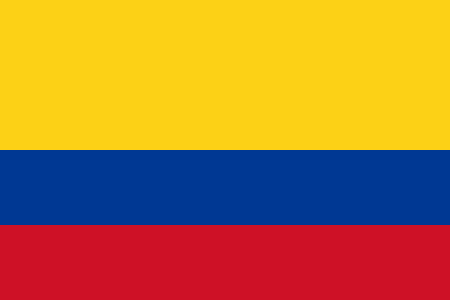News
No longer driven by conflict, Colombians vote for president

The two leading candidates have presented dramatically different visions for both Colombia’s economic model and the future of its divisive peace process in a polarizing campaign driven by a wave of anti-establishment sentiment. (Photo By SKopp – Drawn by SKopp, Public Domain)
BOGOTA — For decades, Colombians voted with an eye on the bloody conflict with leftist rebels that dominated their country and politics.
But on Sunday they will cast their ballots in the first presidential election since the signing of a peace accord with the nation’s biggest rebel group to end the conflict and will be weighing issues like corruption, inequality, crime and relations with their crisis-plagued neighbour Venezuela.
The two leading candidates have presented dramatically different visions for both Colombia’s economic model and the future of its divisive peace process in a polarizing campaign driven by a wave of anti-establishment sentiment.
Leading the polls is conservative former senator Ivan Duque, the protege of influential former President Alvaro Uribe, the leading critic of the peace deal, but surveys suggest he is unlikely to get the more than 50 per cent of votes required to avoid a June runoff. He’s being chased by Gustavo Petro, a former guerrilla and ex-Bogota mayor, whose rise has triggered concerns he would push Colombia dangerously toward the left and rattle markets.
At least two other candidates trail within reach of obtaining the coveted second spot.
“If he wins, he has an opportunity to bridge some of these divides in Colombia,” said Michael Shifter, president of the Inter-American Dialogue, referring to front-runner Duque. “But the big unknown is what Uribe’s role will be.”
The campaign has sparked fears on both the left and right of Colombia’s political spectrum, with Duque’s critics cautioning that his presidency would be tantamount to a constitutionally-barred third term for Uribe. Though hugely popular among Colombians for improving security and weakening illegal armed groups, Uribe also presided over grave human rights violations by the military.
Meanwhile, Petro and his populist platform have drawn comparisons from fearmongering critics to the late Venezuelan socialist leader Hugo Chavez, who Petro once admired. He brought Chavez to Colombia in 1994 shortly after the Venezuelan paratrooper was released from jail, where he was sent for staging a military coup, and the relationship between the two has dogged Petro throughout his campaign.
Petro says Venezuela’s economic model doesn’t work and calls himself a “strong adversary” of the neighbouring country’s current president, Nicolas Maduro.
He is proposing an overhaul of Colombia’s economic model to free it from its dependence on oil exports and instead boost agricultural production through land reform. His campaign says he’d dramatically increase taxes on unproductive lands to encourage landholders to sell them to the state.
Hollman Morris, a Colombian journalist who has been supporting Petro’s campaign, said Petro’s trajectory from leftist militant to congressman and mayor of Bogota, and now possibly to the presidency as an important sign of Colombia’s political evolution as voters show they are willing to move beyond long-held fears of leftist contenders.
“We think Colombia has reached an important level of maturation,” Morris said at Petro’s campaign headquarters. “But also, Colombia has begun to realize the decline of its traditional political class, which is totally involved in corruption.”
In the final days before the vote, Petro accused officials of failing to address a voting software glitch that he said could lead to fraud.
That led to an outcry among his competitors and a rare intrusion in the campaign from outgoing President Juan Manuel Santos, who said “leftist extremists are the same as right-wing extremists: they invent frauds where they don’t exist.”
Aside from the economy, both Petro and Duque differ on the peace accord, which has been slow to implement and remains controversial among many Colombians who believe it granted overly generous terms to demobilized guerrillas. Petro supports the accord while Duque has said it needs “correcting.”
With Colombia’s political polls notoriously off, there’s still room for an upset with candidates like former Medellin mayor Sergio Fajardo and former Vice-President German Vargas Lleras trailing close behind.
Fajardo, who is credited with Medellin’s transformation from a hotbed of crime into a growing tourist destination, has run on a platform of rooting out corruption and boosting social programs. Vargas Lleras is pledging to create more than 1 million new jobs.





















